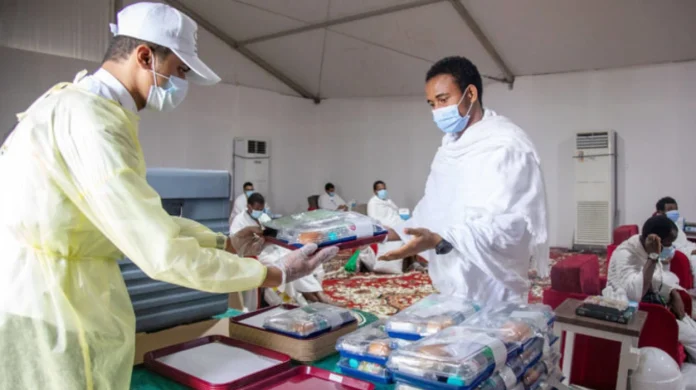Much debate has erupted after Saudi Arabia’s successful bid to host the FIFA World Cup 2034. However, despite the good endowment of large resources, state-of-the-art infrastructure, and hosting ambitions, there are grave challenges that need to be dealt with. One of them is food safety and hygiene, which plays a vital role in ensuring the health and satisfaction of millions of foreign visitors. This article is about the food safety and hygiene issues that bring into question whether Saudi Arabia is an ideal country to host this super-global event.
Inconsistent Food Safety Regulations
Food safety standards of Saudi Arabia have been labeled inconsistent. Though the government has made regulations on the food safety front, implementation varies significantly between urban areas and rural areas.
There are approximately 2,700 PHIs across Saudi Arabia responsible for food safety inspections. However, many inspectors report that existing laws are inadequate and unclear, which hampers their effectiveness
International visitors attending a global event like the FIFA World Cup will dine at various places, ranging from five-star restaurants to street vendors. Reports on inconsistent food safety inspections and enforcement in Saudi Arabia reveal a risk exposure where visitors may be vulnerable to unsafe food practices.
Lack of awareness on the part of food handlers
Food safety measures are very much dependent on the knowledge and practices of food handlers. There have been some observations on gaps in training and awareness among food service workers in Saudi Arabia.
Studies show that about 50% of food handlers in Saudi Arabia have poor knowledge of food safety principles. For example, a survey found that about 40% of food handlers in state hospitals did not understand the Hazard Analysis and Critical Control Points (HACCP) system, which is important in preventing foodborne outbreaks.
A majority of the food handlers in Saudi Arabia are expatriates, and they receive very minimal or no training on the local food laws and international hygiene standards, which causes food handlers to store food improperly, cross-contaminate it, and cook it ineffectively.
With a multicultural workforce, there is always a language barrier to ensuring proper communication of food safety protocols. Training material may not be available in some cases in the local language. This leads to a lack of understanding and violation of policies.
Foodborne Illness Outbreak
Foodborne illness represents an enormous threat as millions from all parts of the world gather at any event in the world. The management of outbreaks of foodborne illnesses has created several problems in Saudi Arabia.
There have been complaints of food poisoning at restaurants and from catering services in Saudi Arabia. Even though such well-publicized cases get given priority treatment, the reasons are worrisome for the common cases-a host of poor kitchens and refrigeration.
Health System Burden
A huge infection would overburden hospitals in towns, and with the added burden of foreigners, no one will expect them to be as geared up. Such outbreaks would require a very strong public health approach that Saudi Arabia has not demonstrated yet at this level.
Hot Climate and Food Spoilage
The desert climate in Saudi Arabia creates some unique challenges to food safety, especially with the World Cup being held in November and December.
Temperature Control Issues:
The high temperature demands strict actions to refrigerate and transport food materials. Failure in this action of refrigeration may even lead to spoilage of food and contamination.
Food Stalls in Streets and Public Places
Such types of food stalls and centers in streets and public areas often lack proper conditions regarding hygiene and temperature in cases of high temperatures. Consumption of food from these may pose risks of getting various foodborne diseases.
Inadequate Inspection
The General Food and Drug Authority of Saudi Arabia has the main responsibility for the country’s food safety. With the rapid growth of the food industry, however, the agency faces great difficulty in following all food safety activities.
A penalty for violation of food safety is usually lenient not to discourage people from violating. Unless stricter action and enforcement are implemented among food establishments, they might compromise hygiene and safety.
Problems of Waste Management and Sanitation
Good disposal of waste is very central to attaining hygiene, especially for such a scale of events. This forms a problem area in Saudi Arabia. All waste from restaurants, catering service providers, and fan zones must be disposed of promptly and hygienically to check pest infestation and recontamination.
Presently, Saudi Arabia’s waste management capabilities may be overwhelmed by a much-increased volume that arises during the World Cup events. Street food vendors, who characterize such events, do not have the facilities to provide clean water and adequate waste disposal, thus making foodborne diseases more likely.
Reputation Threat for FIFA and Sponsors
If food safety factors happen to be what represents the World Cup, the reputation of FIFA and other sponsors will be under maximum risk. The whole issue will then mark a minus for the legacy of the World Cup.
Food safety events are likely to receive significant media attention at this huge event. This can offset the efforts by FIFA to make the World Cup a festival of global unity and excellence. Food safety concerns would prevent international visitors from visiting or enjoying the event wholly, affecting ticket sales, tourism revenue, and general satisfaction.
Conclusion
Conclusion Saudi Arabia has done enough to commendably pursue its ambition of hosting the FIFA World Cup 2034. However, food safety and hygiene are crucial issues that pose a very significant challenge in the accomplishment of this feat. Indeed, these challenges are more than important in ensuring the success of the event but for the health and safety of millions of international visitors.
Unless major changes come into place for food safety standards, regulatory oversight, and public awareness, Saudi Arabia may not meet expectations connected with hosting a world event of this scale.












